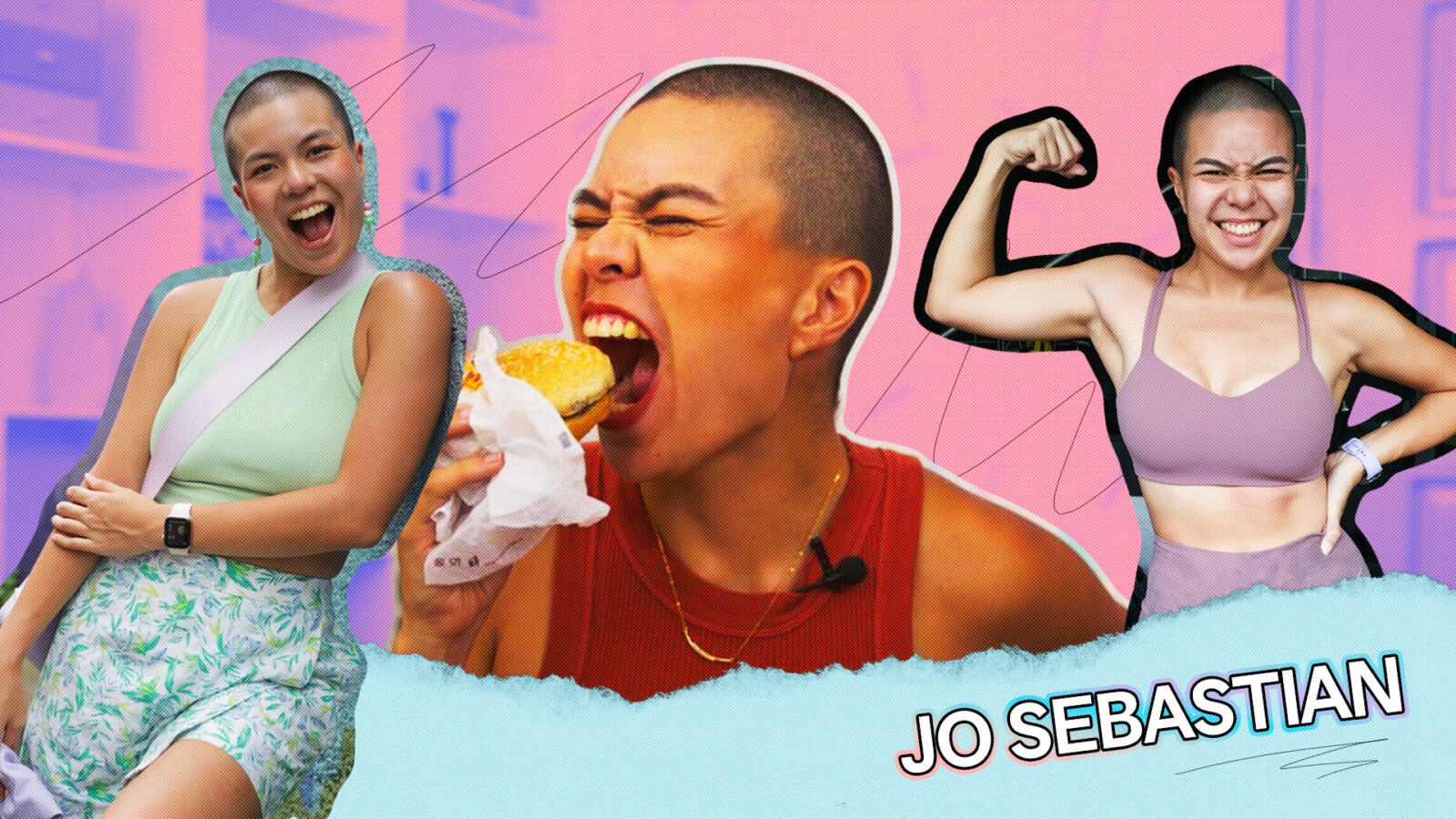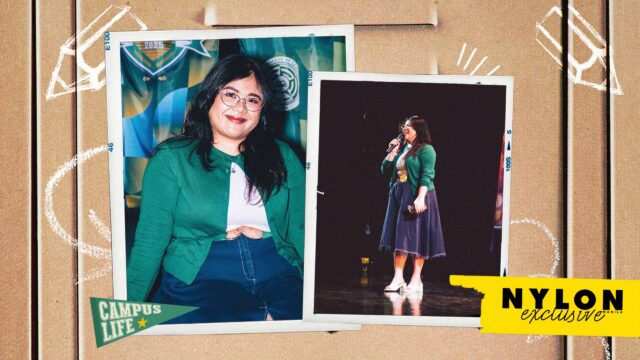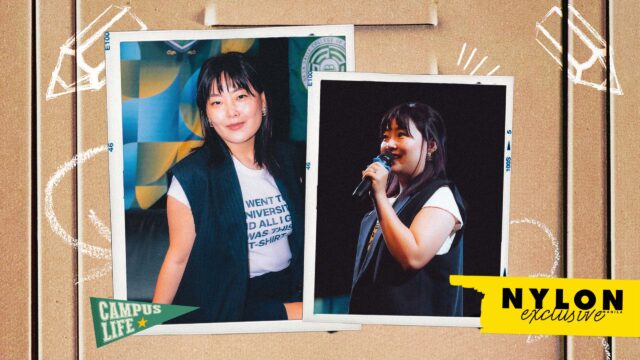Fearless Social Media Star winner Jo Sebastian wants you to know that there’s no need to struggle when it comes to our eating habits.
Related: Here are the BRAVE Winners for NYLON Manila’s Big Bold Brave Awards: Next Level
(Trigger warning: This article contains mentions of eating disorders, food binging, and food purging)
Nothing is as common in the youth as dealing with body image and our relationship with eating. We all go through a period in our lives where our body and what we eat becomes our greatest insecurity. Weight and dieting are a burden many of us bear as we struggle to be in that place where we love ourselves enough that we don’t treat what we eat as some sort of punishment. It can almost be paralyzing to want to look a certain way as you enter a seemingly never-ending spiral of self-consciousness. This is something Jo Sebastian knows all too well.
YOU DESERVE TO EAT
Growing up, the content creator struggled with body image issues. She was studying ballet at the time, and the traumatic experiences she went through had her focusing heavily on getting down to a certain weight, which manifested in unhealthy eating habits that did more harm than good. But as Jo got older, she found the strength and drive to move past this toxic mindset to see her body and food in a more positive light. This is the message the 27-year-old registered nutritionist and dietitian, who graduated BS Community Nutrition at UP Diliman, is sharing in her content.
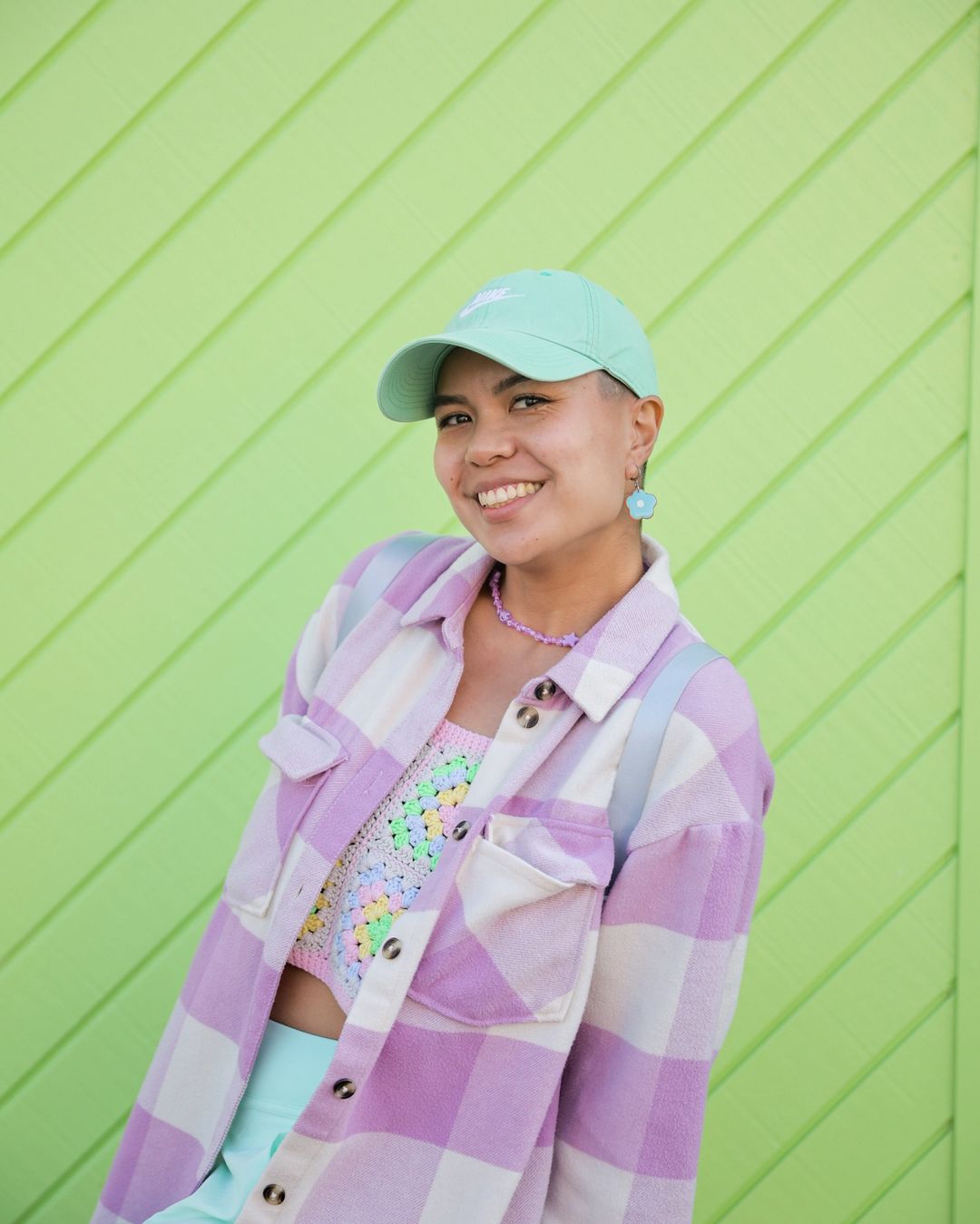
INSTAGRAM/ITSJOSEBASTIAN
With hundreds of thousands of followers across her social media pages, Jo has built a platform that cuts through the noise of fad diets and miracle workouts for advice, tips, and lessons on proper eating. Her content resonates with many as she demystifies the perception around dieting and that it shouldn’t be some sort of punishment. Jo has become a fearless voice to remind us that food is not your enemy and there are ways to enjoy what you want and still be healthy. It’s no wonder she was voted Fearless Social Media Star at NYLON Manila’s Big Bold Brave Awards: Next Level.
We recently had the chance to chat with Jo as she opened up about the misconceptions around dieting, changing our relationship with food, and more. Read on below for what she had to say.
Your mantra in your videos is “Remember, you always deserve to eat”. Why did you decide to make that your go-to line?
I’ve been on YouTube since 2015. And initially my line was “stay fab”, which was essentially to remind us to stay confident, stay fabulous, and like to believe in your fabulousness. But that was also when I was making beauty and lifestyle content. So when I shifted to nutrition, I was trying to think of something that I would always want to hear when I was younger, or something that maybe would help me. And something that was very helpful is to remind myself that I do deserve to eat because for a long time, I didn’t think I deserve it. I didn’t think I was allowed to eat because it was a punishment, or it was something I had to earn.
There are a lot of fad diets and supposedly miracle workouts on the internet. What advice would you give to people on how they can avoid falling into these traps?
If somebody tells you, you can lose 10 pounds online just by consuming this tea, or just by doing this workout, you can instantly get abs, if it sounds like it is too good to be true, it probably is. Also if it is an exaggeration of something. I think that’s also something that we see a lot of in wellness trends, there are major exaggerations. And also please be mindful of who you are listening to advice. A lot of advice online is anecdotal.
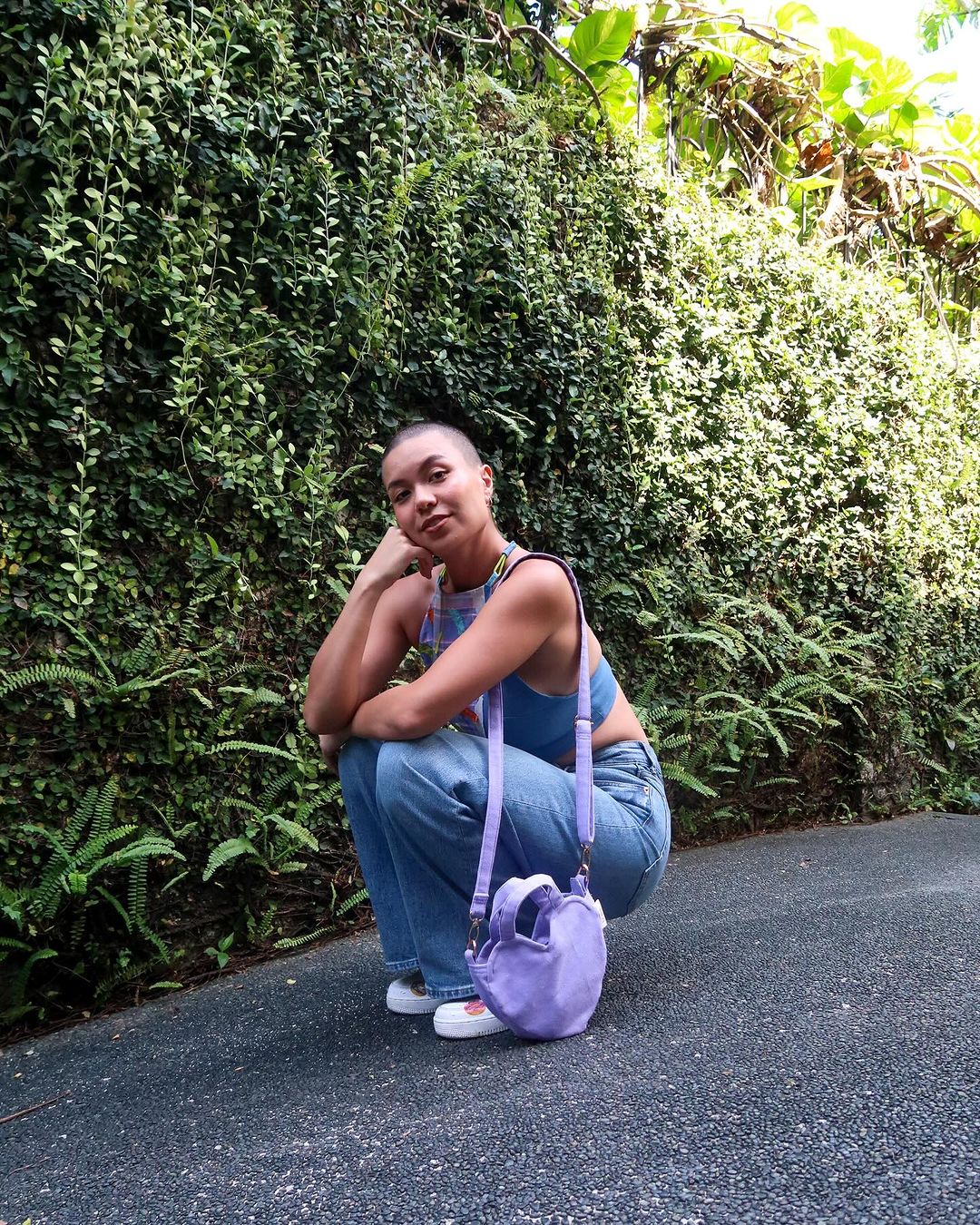
INSTAGRAM/ITSJOSEBASTIAN
More and more people are pushing the mindset of body positivity and neutrality. As a nutritionist, dietitian, and content creator, how do you navigate this mindset while still educating your audience when it comes to eating and food?
So I think one of the biggest things we have to recognize is that your relationship with food is also a reflection of your relationship with yourself. What do I mean by that? We often have this thought of what do I deserve? Do I deserve to wear the clothes that I want to wear? Do I deserve to exist in general? And this then dictates our self care. If you don’t think that you deserve kindness and care, you are probably going to starve and punish yourself. And that’s why how you feel about your body and your relationship with your body is very important. And this is something I tackle with a lot of my clients.
You have to remember that changing your body is not going to change how you feel about it. If you don’t think that it’s worthy in the first place. Something I also tell my clients is, you know, we’re not born with insecurities. You grow into these insecurities, because that’s what we’re taught. And so this negativity tends to fuel our self care where we’re no longer doing it through self care, it becomes more of a self hate. You’re not eating the foods that you like because you don’t think you deserve it,. You’re exercising three, five hours a day because you think you have to punish yourself. And that’s all related to our body image. So since body positivity would be, well, in an ideal world, we would all love and be so kind to our bodies and be positive about it, it’s not realistic. That’s how our body neutrality came in.
You don’t have to love your body. But you also don’t have to hate it. Your body doesn’t have to be good, but it also doesn’t have to be bad. It just has to be your body. And you focus now on experience and realistic and objective use of your body. My legs are big, period, as a descriptor, not a negative thing, just just an objective thing, or these are my legs. Because this helps us acknowledge our body, that it exists, and it’s ours, and can help us see it through a kinder lens. Because again, it should be self care and not through self hate. And that is such a big part of nutrition as well.
What do you think is the biggest misconception people have when it comes to dieting?
So let’s go into two sides of that spectrum. Number one, dieting or being healthy in general is hard. That is a big misconception. It’s just that it is hard because it is a privilege. I agree. But we also have this version of health that is not realistic or made for everyone, you know, the organic food, the wellness girl is online with their hot girl walks and things like that. And while I love those trends, it also just paints a little bit of a picture of what health is supposed to look like, and how it can look different on anyone. So that’s number one, that health is hard. And it is only one view that there’s only one version of health.
Another one is that it is perfectly sustainable or realistic for you to reach your goal body just by eating a specific way and working out a specific way. We kind of have this thought that okay, if I eat and work out the same way as this person, I will look like them. It’s actually the lifestyle and the image that that person portrays that you want. And you think that if you had that, you would be that and you would instantly get that, but there but everyone is different. It’s different for everyone. Everyone has different needs. Everyone has a different lifestyle.
So the assumption that the way someone is eating online is exactly the way that you should be eating exactly is something that we have to move away from. Also, in connection with that, what I eat in a day videos are a little bit touchy for me, I love them because if they’re done in the right way, they can be very inspirational and motivational for you to have meal ideas, right? But it’s always important to remember not everybody eats the same way, what I eat in a day videos every single day, that’s just one random day in their life that you see.
Congratulations on winning Fearless Social Media Star at NYLON Manila’s Big Bold Brave Awards: Next Level. Where do you get the drive to promote and champion your advocacy?
I was also a teenager who struggled with body image and binge eating. I struggled with disordered eating. Up until I was past college, I was still struggling for such a big time in my life. Even today, I struggle sometimes even if it looks like I don’t I still do. And that’s why every single time I see something online that kind of triggers that younger version of myself, who just wants to be skinny at all costs, to sacrifice my health just to get a lower weight on the scale.
Every time I think of that person, I remember why I’m doing it. Of course, there are times where it can be very, very stressful, because the algorithm isn’t always the kindest, and then you start to question yourself and your values and what you’re even doing. But it’s a whole other thing. But the biggest thing that drives me and motivates me is that little girl who was so mad that she wasn’t below 100 pounds at five feet five inches. And she was so sad about it all the time, just because she wasn’t below 100 pounds. And she would stress about it for so long. I think about that girl a lot and I try to talk to that girl whenever I can.
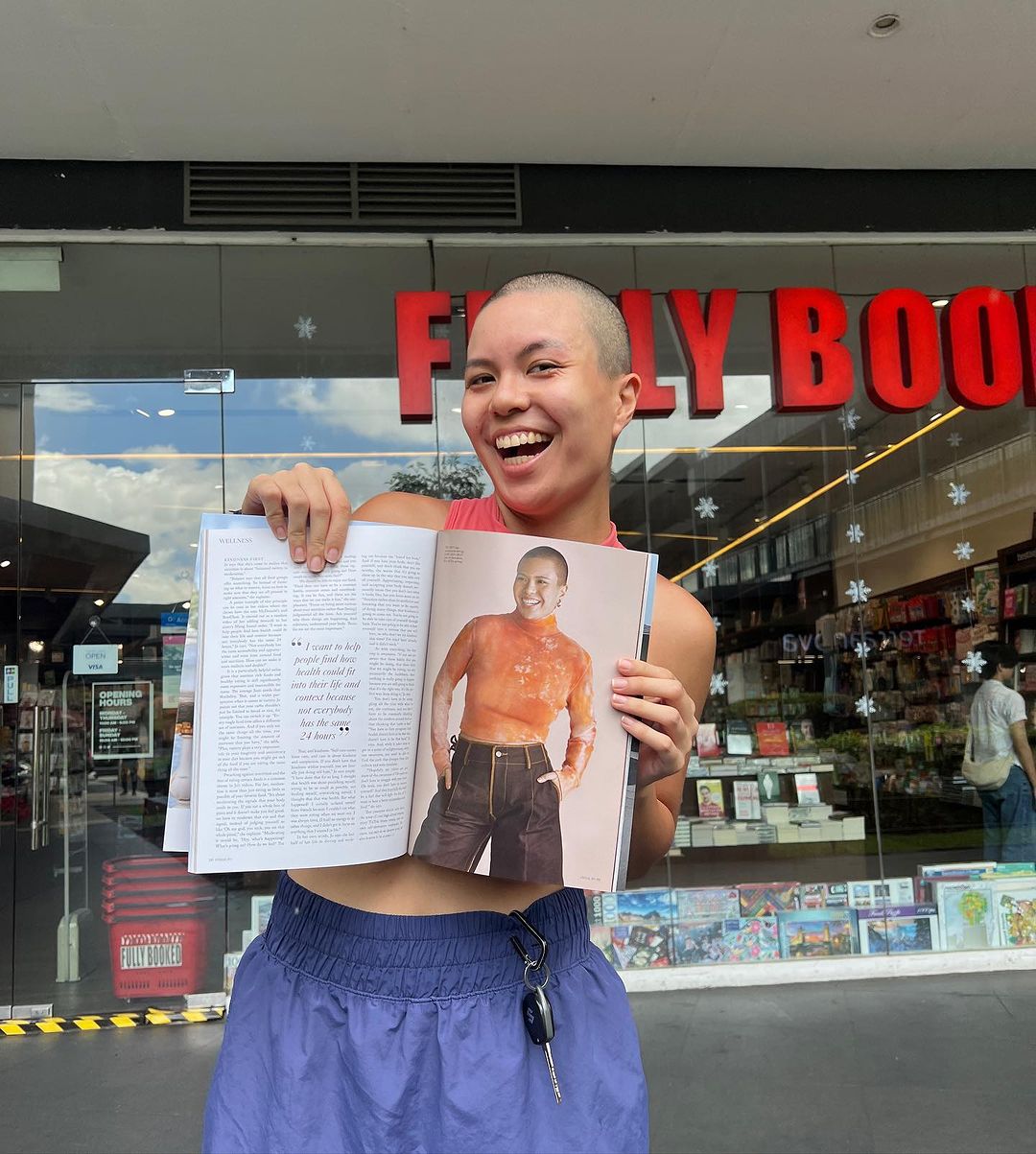
INSTAGRAM/ITSJOSEBASTIAN
How do you find the joy in eating?
I think it’s just about experiencing it. I think the joy for me in eating is when I remember that I used to not eat. And now I allow myself to eat. That’s such a different experience for me. I don’t have to feel guilt around my food choices anymore than we are used to. And that’s where I find joy. This extra joy level comes to me when I remember when I couldn’t eat one slice and not like cry or try to purge it out. I think that is where I find most of my joy is the fact that I am at peace with my relationship with food. Not perfect, of course, but I am at peace.
In the world that still bases people’s worth on how they look, how can Gen Z learn to love their body and themselves more?
I think it’s just being as authentic and genuine as you can online. I’ve talked to a few people before and they talk about how they have to be so perfect online. And I’ve been seeing such a shift on social media where you don’t have to be perfect. In fact, a lot of the time they want you not to be perfect. Of course you also go to the other side where we actively try not to be perfect and it becomes a little bit weird. I’m still trying to figure that one out as well. But, you know, I think for me, it’s showing the authentic versions of ourselves as much as we can.
Show yourself without sucking in your stomach. Wear the clothes that you want to wear even if there’s belly rolls. Look at your cellulite, look at your stretch marks, look at the hair on your body, your pores, like those things are real. They’re not flaws. They’re just real characteristics and real features of your body. And I think that’s just the most important way that we can continue with that. It’s just recognizing that we are human. We are real people and you know that it’s okay to be that.
What would you say to young people who are struggling with their relationship with food?
It doesn’t have to be this way forever. It’s hard to approach this because when I was in the deepest part of my disordered eating, nobody could tell me what I was doing was wrong. Nobody’s concern would hit me or I would not care about that. So it depends on where you’re at in your journey. But it is just that reminder of if you are not comfortable, and if you don’t feel happy in the things that you were doing, it doesn’t have to be that way. There is a way to get out of this cycle. But you have to recognize first the cycle you’re in to be able to get out of it.
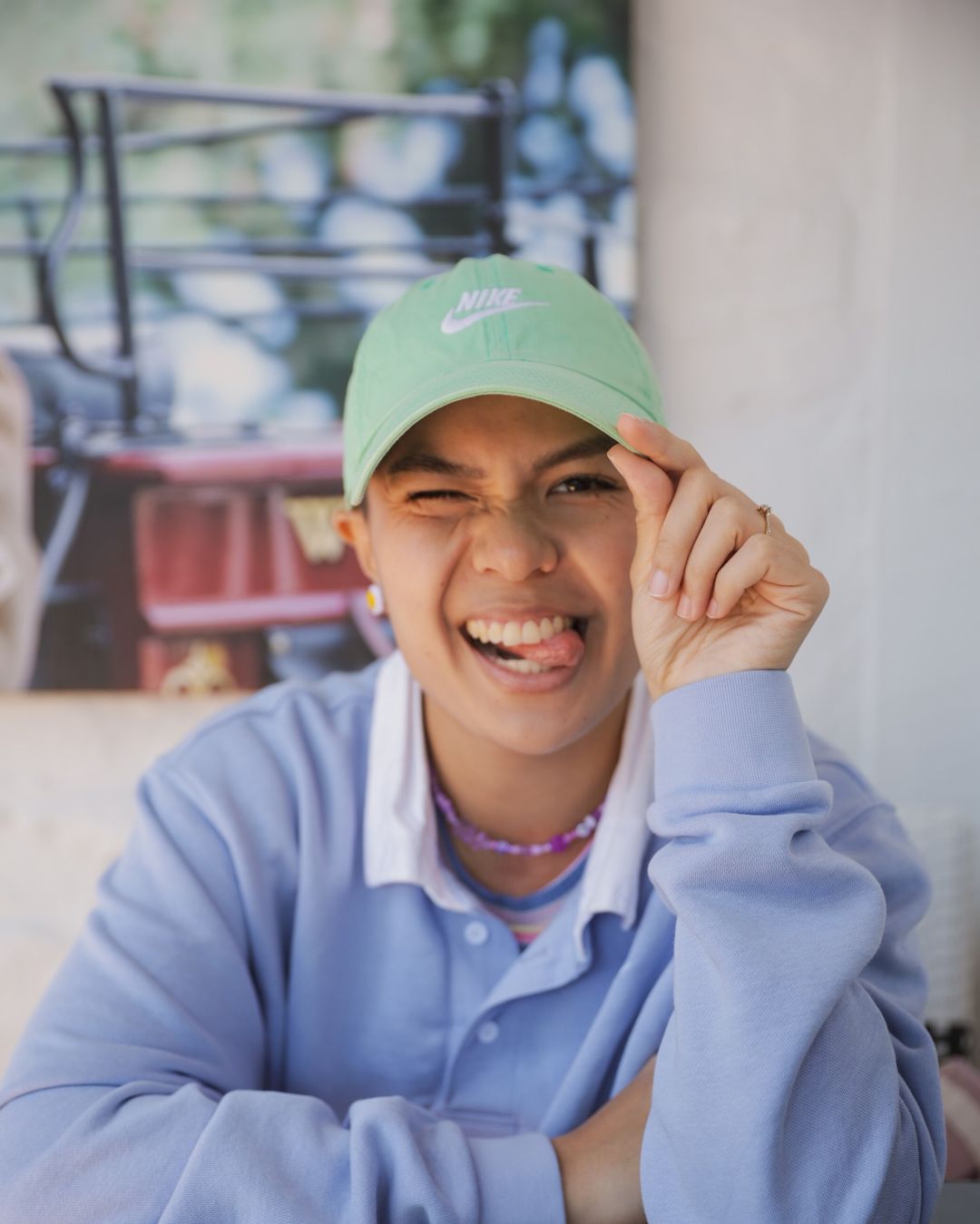
INSTAGRAM/ITSJOSEBASTIAN
What do you think needs to be done for society to move away from obsessing over what we eat?
There’s too many things that we have to do. For example, social media is such a big way to spread information and misinformation. So if we can possibly be able to catch all of the content that is spreading misinformation, and be able to debunk them, that is so, so, so important. The fear mongering, I think, is one of the biggest things that needs to be honed back, you know. There are just so many hyper exaggerations and fear mongering and food that makes us so obsessed and scared of what we’re eating.
If we started to focus on being kind, curious and focused on adding habits and nutrients, then we would be able to move forward a little bit better. Of course, there’s a lot of things that impact your relationship with food. It’s not just food. It’s also, like we mentioned a while ago, what’s your experience with food growing up? What are the traumas that you’ve had? And do you resort to food as your only form of comfort? There’s just so many things. But I think it starts first with that awareness that it doesn’t have to be this way and where and when to distance yourself from information that just is not helpful.
If you could travel back in time and talk to young Jo, what would you tell her?
I think I would just try to show her that I’m struggling right now. And it’s okay. But also that you can get through it or like you will get through it. I know it’s hard right now, but there is a version of you and a path for you that does not look like this, it’s not going to stay like this forever. I think that’s just what I needed to know that it’s not going to be like this forever, and I was gonna get out of it.
Interview has been edited for length and clarity
Continue Reading: 12 Gen Z Personalities Who Ended Body Shamers
